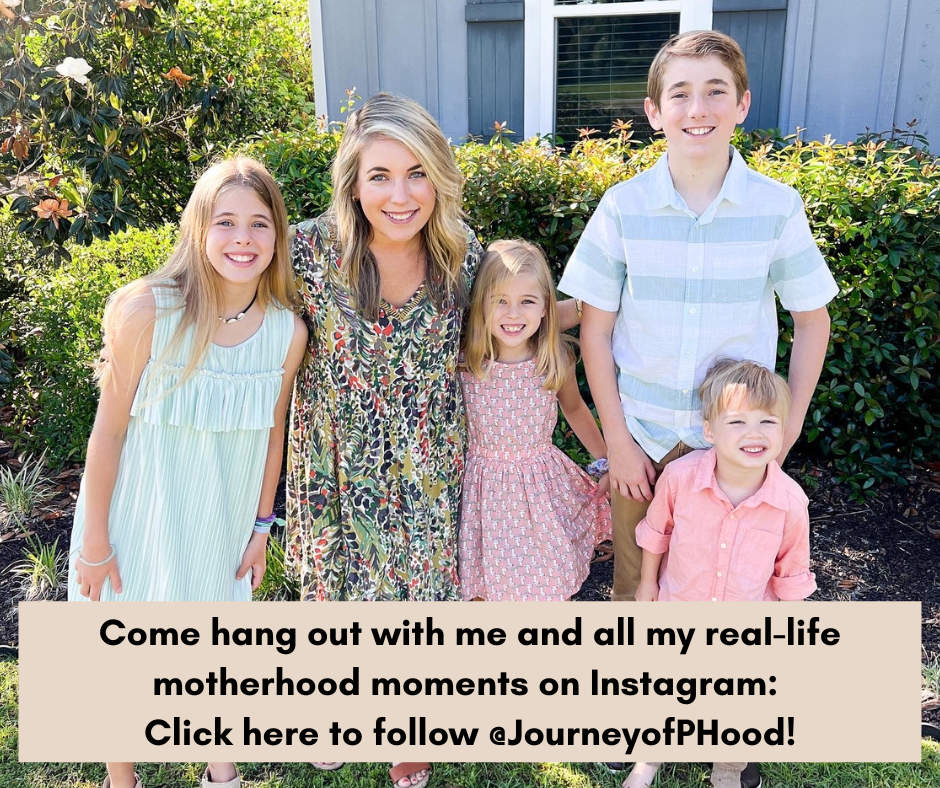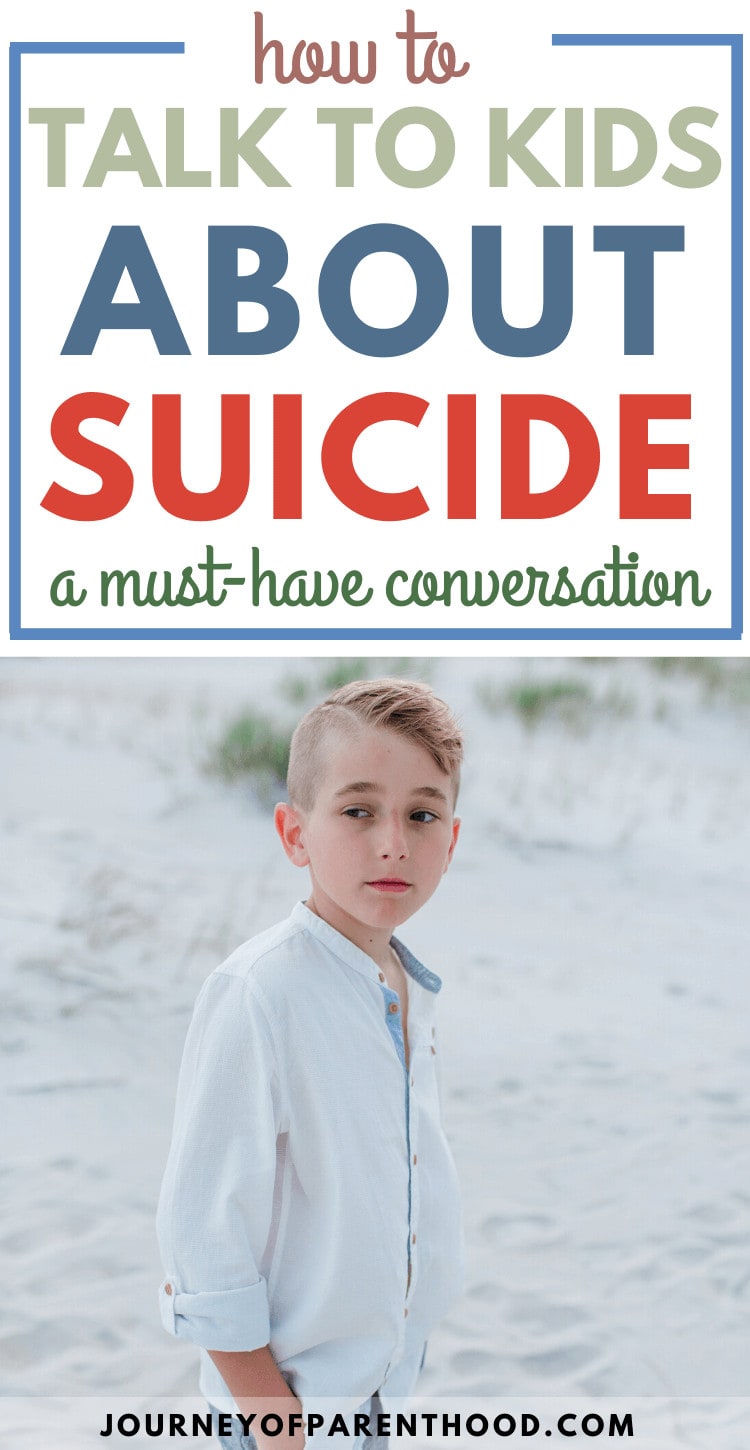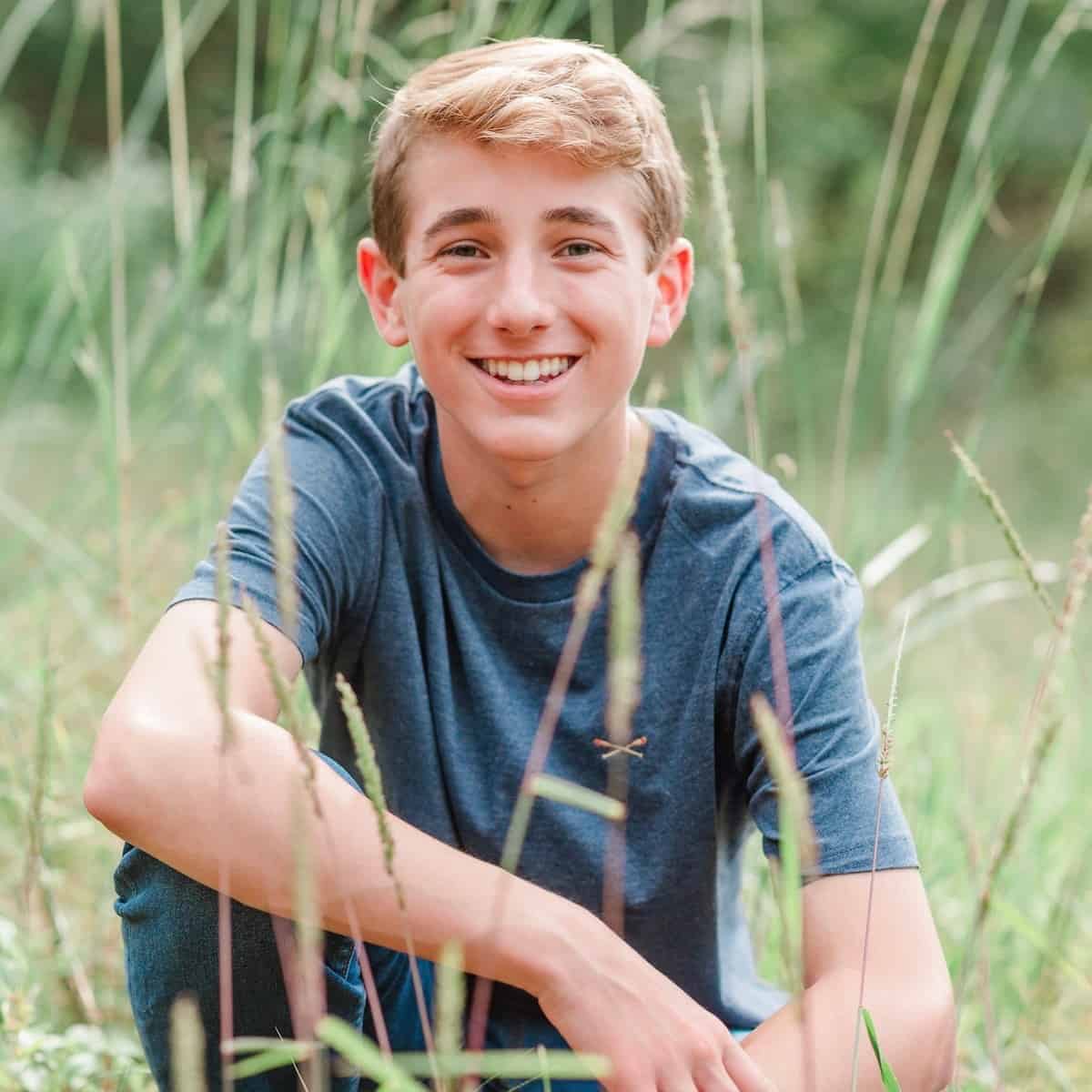Even just writing that sentence gives me chills and a kick-in-the-stomach type feeling. As I’m sure it does for any other parent reading that sentence too. Talking to kids about suicide?
That’s a scary topic. But it’s also a very serious topic. An important topic that kids need to know about as they enter puberty.
And parents needs to discuss it with their children before they hear about it from somewhere else.
Disclaimer: this post contains affiliate links.
It’s Easy to Overlook Certain Topics
I’m a hardcore mom. Hardcore in many areas. I’m hardcore about establishing good sleep habits from birth, about car seat safety, and about raising my kids in Jesus.
I’m hardcore about talking openly with my children, being a source of support for them in all areas, and listening to them.
I’m hardcore about my nightly routine with my kids – giving them quality time with me each night to share their hearts and feel poured into by their mama.
I am an overthinker, an over-analyzer, a type-a personality, and a mega planner.
We talked to our oldest child about sex when he was in second grade. (Post to come on that topic but we used this book and it’s FABULOUS).
I wanted to have “the talk” with him before he heard about it from friends at school.
Wanted to be his first resource rather than sit back and wait for him to come to me with questions.
We’ve talked about body parts. Puberty. Love. Rejection. Bullying. Online Safety. Even topics you’d think a fifth-grader wouldn’t ever think about like abortion.
But talking to my kids about suicide never crossed my mind.
Not once.
This hardcore planning mama never even considered it a topic that needed to be talked about with my child.
It wasn’t until we recently went in for his 11 year well check up at our pediatrician that I realized this is a topic that needs to be discussed.
Starting at age eleven our pediatrician gives a packet of questions to BOTH the parent and the child to be filled out while waiting for their yearly check-up.
The packet had all sorts of questions and a range of topics.
The answers were “yes” “no” or “sometimes” and covered things like school, health, social stuff, activities, as well as bigger issues like safety, emotional well-being, sex, and suicide.
As we both filled it out it was sort of a “mom check” moment for me.
I felt pride when the questions came up “have your parents talked to you about puberty and body changes?” and “have your parents talked to you about sex?” and my son easily circled “yes.”
But when the questions about mental health and discussing suicidal or violent thoughts came up I realized I had dropped the ball on this super, super important area.

Why We Need to Talk about Suicide with our Kids
Suicide is the 2nd leading cause of death for 15 to 24 year old Americans. (CDC)
I think that stat alone explains itself as to why talking openly to kids about suicide is so crucial and important.
We set up online security measures to keep them safe.
We put them in car seats and have them buckle-up to keep them safe.
An open line of communication is THE seatbelt when it comes to suicide prevention.
Talking about suicide and other heavy topics is what will keep our kids safe.
Knowing they can come to us. Knowing we will listen. Knowing we are in their corner.
THAT is how we help prevent suicide for our children.
Thinking about it is terrifying. Talking about it is nervewracking.
But being silent is not the answer.
Talking to you kids about suicide is the best way to help prevent suicide. You are the prevention lifeline your kids need.

Before You Talk About Suicide with Your Kids
It’s so, so important to have an open dialogue with our children.
If you are like me and realize you haven’t yet had this important conversation with your kids… make sure you are setting the stage for this talk prior to the moment.
I’m very much against being friends with my kids, however, I’m also equally passionate about always being a safe space for my children.
I personally do not believe my children should fear me as their parent. Respect, yes. But fear? No.
I want them to know they can come to me at any time about anything.
That yes, there may still be consequences for their actions or for what they may share with me, but that even those consequences are out of my love and care for them.
Often I’m distracted. I have four kids! It’s impossible to give each of them my undivided attention throughout the day.
I would love to say I’m that parent that stops everything in the moment that my kids want my attention and give them my FULL attention, but realistically it just doesn’t happen.
That’s why I take the time each night at bedtime to give them my full attention.
If this isn’t part of your routine, I recommend it!
It’s a great time to discuss anything and everything. Check-in on how their day was, share some things on your mind, discuss topics that may be in the news or things they may have overheard you discussing.
Share upcoming plans. Get their input on some decision making. And yes, have those tougher heart-to-heart kinda talks too.
We can’t just sit our kids down on a random day and expect them to tell us that they’ve had thoughts about hurting themselves.
We have to show up for them on a consistent basis and be there for all the little things in their daily lives in order for them to come to us for the bigger things.
By having an individual check-in with our kids on a regular basis, it establishes that baseline for connecting and it allows for tougher conversations to not be nearly as tough or seem out of the norm as they are just “part of” that routine.
My kids think nothing of my asking them if they have anything on their hearts because they hear me ask that question on a regular basis.
When we talked to our oldest about sex it wasn’t a big deal or awkward or uncomfortable because we talk all the time about all things and have never had an “off-limit” topic.
The same was true about talking about suicide with him – he’s used to talking to us. Used to us asking questions. Comfortable sharing his heart. Knows he can trust us.
Having that bond that we’ve worked hard to establish allowed a very, very important conversation to be smooth and much less intimidating for us all!
I hope this post helps in preparing you to discuss this topic with your child but since I didn’t really have any idea of how to best approach this topic I searched Pinterest for additional resources and information as well as frequently asked questions to learn about talking to kids about suicide.
Talking to Kids About Suicide: When To Do It
I’m a big believer that the earlier we talk about topics with our children the easier they are to discuss.
Subjects become taboo when we avoid discussing them.
Nothing is ever off-limits for us with our kids when it comes to topics of conversation.
I think these kinds of discussions should be age-appropriate based on your child and where they are at in their maturity and understanding.
I love that our pediatrician has these forms at age eleven as it gives a nice guideline for important topics to cover with our kids by the time they reach this milestone age.
My plan moving forward with my other children is to make sure I have talks about mental health and begin asking suicidal and violent thought related questions on a regular basis prior to reaching age 11.
Even if you never see warning signs or are worried about your child considering suicide, it is still a must-have discussion.
How to Approach the Suicide Talk with Kids
I think one of the biggest fears we have as parents about asking our kids if they’ve ever thought about killing themselves is that it will somehow put the idea in their head.
It won’t.
If it is something they’ve thought about? Then asking them will give them relief.
We all know what it feels like to hold in a secret or have a fear and feel alone and isolated in carrying that burden.
By presenting our children with an opportunity to share those thoughts it gives them a release from them and allows us to help carry that heavyweight.
It’s important to let your child know you love them and that they can tell you anything.
It’s important to ASK questions.
A general talk about suicide information isn’t going to cover it.
It’s important to ask:
- Have you ever heard anyone talk about hurting themselves or having violent thoughts?
- Have you ever heard anyone talk about killing themselves?
- Have you ever thought about hurting yourself or have had any violent thoughts?
- Have you ever thought about killing yourself?
By leading with asking about others it can help lower their walls and to open them up to being more comfortable to share about their own thoughts.
After asking the questions…the next hardest step as a parent is to LISTEN.
JUST LISTEN.
Don’t interrupt. Don’t interject.
Don’t share your own experiences. Don’t minimize theirs. Don’t dismiss their thoughts. Don’t overly dramatize them either.
Just listen.
Listening is HUGE. It let’s your child know they can count on you and that they are not alone.

If Your Child Says They’ve Considered Suicide
Even if you are reading this and thinking “my child would never…” it’s still important to have a plan in place for how to handle the discussion if they say they have had thoughts of ending their own life.
I also want to say that most parents of kids and teens who do commit suicide often also assumed their child “would never.”
Don’t assume.
Go into the conversation prepared so if you do hear a “yes” to the questions that you know how you will respond.
Again, the most important thing is to listen.
And when you talk? Be reassuring.
“That must be so hard, thank you for sharing that with me” is a great phrase to keep in mind and to have on hand.
It reinforces their feelings, that you are listening, and that it’s so important that they shared it with you.
It doesn’t minimize their emotions and doesn’t create a situation where you are attempting to relate to them (I read that saying things like “I know how you feel” is NOT helpful because you aren’t them…you don’t KNOW how they feel).
It also doesn’t push them away by brushing off their feelings or causing them to feel guilt for them. (Don’t say things like “suicide is so selfish, why would you ever do that when you have so much to live for?”)
It is super important to follow up with more questions, trying to get the clearest picture and understanding of their thoughts and worldview in order to help them work through it and prevent any sort of self-inflicted pain or violence.
It’s important to ask:
- Do you have a plan of how that would happen?
If you are comfortable asking more specifically, that’s even better.
Knowing if your child has had thoughts of “the world would be better without me in it” or thoughts like “I plan to use my dad’s gun to shoot myself” are so important and can help determine the best path to take moving forward to help them and what actions you may need to take to make your home and their environment safe.
Again, listen. Listen, listen, listen.
Let them share. Then remind them how much you love them. How much God loves them. How proud you are of them for sharing.
Don’t shame. Don’t minimize. Don’t assume that they would never follow through.
Create a plan together to help keep them safe.
Talk through strategies that may help them when they feel down. Have a list of things that bring them joy to refer to during tough moments.
Help provide them reasons for living, having responsibilities and people who depend on them makes an impact! Being involved with family, active in their community.
Encourage them to use their talents. Highlight their strengths and seek out areas where they can use the talents God blessed them with in order to bring joy to others.
Remove items from your home that could potentially be used to cause self-harm and get help.
Do not be ashamed – this is not a reflection of you or your parenting and it’s not a reflection of your child.
It’s HUGE that they felt comfortable with you to share these thoughts and it is so important to take it seriously and find professionals to help.
Mental health is such an important focus and helping kids work through anxiety, social pressures, self-esteem concerns, depression, suicidal thoughts and anything else they may feel or go through is so important and it’s awesome to have a third party that is an expert in that field to help!
Therapy and seeking out counseling is so important and valuable.
Not just when it comes to suicidal concerns, but just for general LIFE too. I personally believe that everyone can benefit from meeting with a counselor and have an amazing one I see myself!
The national suicide prevention hotline is: 1-800-273-8255
The Inner Voice and Suicide
We all have an inner voice and have all had experiences where we have negative self-talk.
In trying to figure out how to approach talking to my kids about suicide I was really drawn to the concept of the inner voice and how people who attempt suicide and are unsuccessful in their attempt share that an inner voice was leading them to that decision.
Thinking about suicide as an inner voice made it easier to explain and comprehend for my child.
I asked him if he’s ever had a moment where he has made a mistake and a voice in his head was saying “ugh you’re just so dumb”
I explained that sometimes we may hear that voice say things like that but that it could also say things like “you’re so dumb, the world would be better off without you.”
And that sometimes people hear that inner voice saying those things and then hurt, or even kill, themselves.
And that while he doesn’t have to tell Mommy and Daddy every single thought in his head, anytime he ever hears any inner voice saying anything about hurting himself or that he should stop living he needs to tell us.
I let him know that it’s never, ever wrong to have these kinds of thoughts, and that even Daddy and I have had some sometimes at some point, but that it’s very important to tell us when and if they happen.
That by telling us those thoughts, we can help silence that negative inner voice.
We talked about times when he feels negative about himself and times when his inner voice may say negative things.
My son is a typical first born (and a lot like his mama) and he tends to be a perfectionist and hard on himself when he isn’t able to perform a task at that “perfect” level.
We’ve talked countless times about how no one is perfect (except Jesus) and how Mommy and Daddy are always proud of him even when he makes mistakes and that nothing would ever, ever change our love for him.
Our talk allowed him to share that his negative inner voice happens when he does fall short of a personal goal or when he has times that he’s disappointed us on some level.
This was a great opportunity for me to remind him of the unconditional love we have for him and talk a bit about myself too and the ways I work through times when I’m hard on myself or hear negative self-talk thoughts.
Who Should Be Talking to Kids About Suicide?
I am a big believer in both parents being an equal resource for our children.
Obviously, I know sometimes that’s not possible – but in our home my husband and I are married and both parent our children so we believe we should both talk about all topics with all of our kids too.
We don’t limit certain subjects to only the same-sex parent or have things that are only for Mommy to talk about with them or only for Daddy to talk about with them.
We both talk to our son about sex. We both talk about body changes. And we both had the talk with him about suicide.
When it came to the intercourse talk, we had it together with him.
With the suicide discussion, we decided to talk separately with him.
We didn’t want to bring up such a tender topic in a setting where he’d feel bombarded by us.
He is used to the nightly routine of each of us spending alone time with him one on one and having both of us present would throw up a red flag to him and possibly make him uncomfortable and be less likely to open up and share anything that may be on his heart.
We also didn’t know how he’d respond.
We knew when talking to him at age 8 about sex that he hadn’t had sex yet and that his body wasn’t at the physical state to even likely have any sort of sexual desire.
But even young kids can commit suicide.
1 in 100,000 children ages 10 to 14 die by suicide each year. (NIMH)
Even though we talk to our son all the time. Even though we both feel like we have a close relationship with him.
Even though he hasn’t shown any signs of suicidal thoughts. Even though he seems happy and well-adjusted.
We can’t read his mind. We don’t know his thoughts.
So we truly didn’t know how he’d respond.
We wanted to make sure it was the best environment and situation possible when having a discussion with him.
We talked a bit about how we both wanted to approach it and I shared with my husband some of the key points I’d researched.
We decided he’d talk first and then I’d talk about it a few nights later.
I was VERY proud of my husband that he wanted to be the one to open up this discussion with our son and that it was important to him to let our son know it’s good to talk about these things.
So often there is such a stigma when it comes to mental health and I love that my husband understands how important it is and takes these sorts of conversations with our children so seriously.
Talking to Kids About Suicide: Our Plan
My son was pretty annoyed by the five pages of questions he had to answer at the doctors’ office, but when I talked to him about suicide I explained that the reason I thought to have that talk was because of those question pages!
I truly do not know if I ever would have even thought to approach this topic with my kids if I hadn’t read through that packet.
I apologized to my son for not having this discussion sooner and thanked him for allowing me to be open in asking those questions and for always sharing his heart with me.
I have always told my kids that anytime someones says “don’t tell your mom or dad” that it means they SHOULD tell us as soon as possible whatever was being said (most often right now it ends up being “Sally said not to tell my mom or dad that she has a crush on Jake”…)
I ended our talk with letting my son know if he ever has thoughts or feelings that he doesn’t want to tell Mommy or Daddy or that make him feel uncomfortable or that he thinks may worry us…that those are the exact kind of thoughts or feelings that are SO important TO tell us – no matter what.
And I let him know this was not just a one-time thing but that I was going to do regular “heart checks” with him and his siblings.
I already am in the routine of occasionally asking “is there anything on your heart you want to share?”
My plan moving forward with him is to also start casually asking “have you had any thoughts or feelings you want to share?”
I also plan to check-in and re-ask those big questions too.
I don’t want to harp on anything but do think it’s not just an “okay you’re good” kinda thing.
We don’t know what the future holds or how our children may cope with the changes life brings.
My plan with our younger children is to go ahead and start regularly asking if they have any thoughts or feelings they want to share too.
I do not plan to wait for that questionnaire to have that discussion with my other children.
I know my oldest was mature enough to have this talk with much younger and if I’d thought to have it, I would have at an earlier age.
I am not saying my five year old is ready for a talk about suicide, but I do think this is a better safe than sorry topic of conversation.
It’s never too early to start talking to our kids. They are never too young for us to start listening to them either.
Final Thoughts
I am thankful for the opportunity to share this conversation with my son. It was a big parenting milestone moment for me.
In parenting little ones we worry about schedules and tantrums, but as they grow up our worries become so much deeper. The topics we need to cover with our kids become more complicated and can be tricky to navigate, and talking to kids about suicide is no exception.
I pray this post helps encourage other parents to make time for connecting with your kids and make the effort to talk about the things that make us uncomfortable – the talks that could truly save your child’s life.
- 10th Birthday Message For My Daughter Love Mom {Tess’s 10th Birthday Letter} - June 12, 2025
- Tips to Maintain Structure While Traveling with Kids - May 22, 2025
- A Letter to my Son on His 16th Birthday From Mom (Kye’s Bday Letter) - April 30, 2025







My oldest is 13 and I never thought to do this either. I got the same book you guys use for there sex talk and I recommend it fr parents any chance I can. We are currently reading the 3ed book called relationships with our two oldest boys. Once were done with that I’m going to start the conversation of mental health. I’ve had depression for years so honestly it’s something I should have thought about on my end. Thank you soooo much for this post!